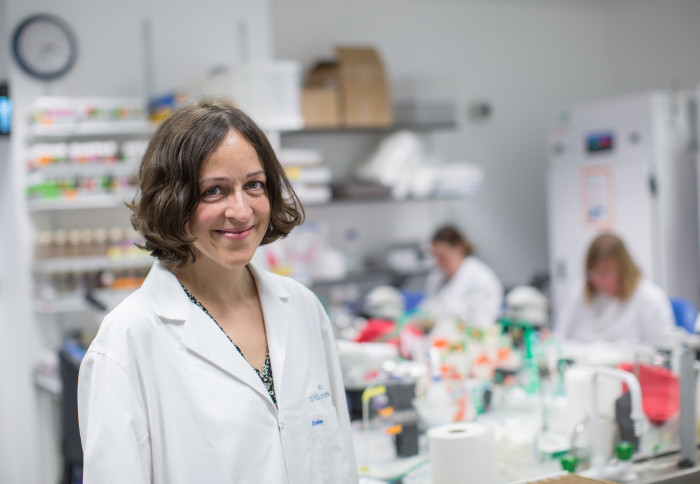Gut-brain connection expert elected to Royal Society

Professor Irene Miguel-Aliaga, who studies how organs communicate, has been granted Fellowship of the Royal Society.
Irene Miguel-Aliaga, who is Professor of Genetics and Physiology at Imperial College London and an MRC Investigator for the MRC London Institute of Medical Sciences, will join more than 70 other members of Imperial staff who are permitted to use the letters FRS after their name.
I am thrilled by the news, and also very grateful to current and past lab members. Professor Irene Miguel-Aliaga
Fellowships are given to distinguished scientists by the Royal Society in recognition of "contributions to science, both in fundamental research resulting in greater understanding, and also in leading and directing scientific and technological progress in industry and research establishments."
Professor Miguel-Aliaga's pioneering work has transformed our understanding of how organs communicate with one another and the importance of gut-brain connections for regulating metabolism. She established how adult organs in model organisms, such as fruit flies, sense and are re-shaped by their environment.
Her citation from the Royal Society states: “Her creative thinking and outside-the-box experimental approaches uncovered previously unrecognised sex differences and reproductive plasticity that impact food intake, fertility and tumour susceptibility. Her insights have major implications for the treatment and prevention of metabolic illnesses such as diabetes and obesity and help explain why some diseases are more common in women, and why men and women respond differently to therapies.”
 Professor Miguel-Aliaga said: “I am thrilled by the news, and also very grateful to current and past lab members, as well as the many collaborators we have worked with over the years. They have all contributed to the discoveries that are now being recognised, and have enriched my scientific journey in a variety of ways, making it interdisciplinary, multicultural, at times unexpected and invariably fun.”
Professor Miguel-Aliaga said: “I am thrilled by the news, and also very grateful to current and past lab members, as well as the many collaborators we have worked with over the years. They have all contributed to the discoveries that are now being recognised, and have enriched my scientific journey in a variety of ways, making it interdisciplinary, multicultural, at times unexpected and invariably fun.”
Professor Jonathan Weber, Dean of the Faculty of Medicine at Imperial, said: “I join the MRC LMS in my congratulations to Irene Miguel-Aliaga on her election to the Royal Society. Irene’s fundamental research on the brain-gut axis is outstanding discovery science with many implications for clinical medicine, perfectly representing the opportunities which can arise from embedding the best scientists in a dedicated institute within a clinical environment.”
Professor Petra Hajkova, Interim Director of the MRC London Institute of Medical Sciences, said: “On behalf of myself and everyone at the LMS, I would like to congratulate Irene on this fantastic achievement and very well-deserved recognition.
“Using Drosophila as an experimental model, Irene has provided some ground-breaking contributions to our understanding of how organs communicate. These investigations are now being extended to mouse and human and provide clear testimony of the power of the use of model organisms to uncover and dissect complex physiological processes.”
Article supporters
Article text (excluding photos or graphics) © Imperial College London.
Photos and graphics subject to third party copyright used with permission or © Imperial College London.
Reporter
Hayley Dunning
Communications Division